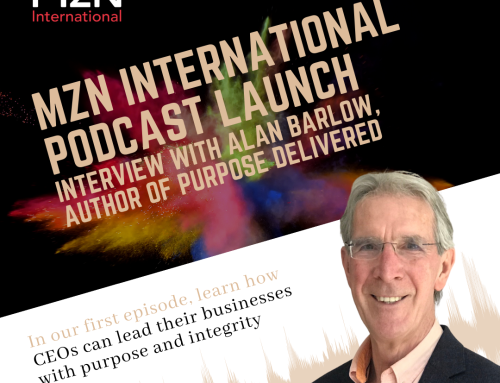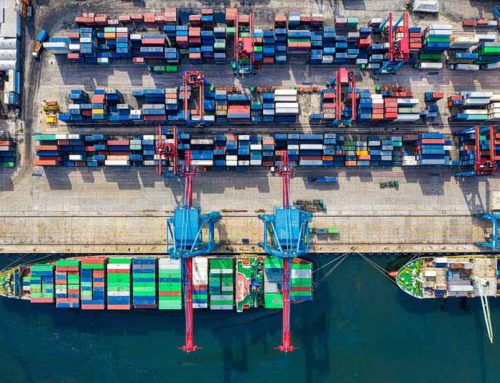A mere two years ago, I was in a boardroom of a Swiss bank attempting to forge a partnership between the bank and an NGO. We pleaded on behalf of the NGO to “make the world a little better”.
Two years later I am back in the same boardroom – but this time for the bank. Management has realised that well-intentioned social responsibility and philanthropy simply do not suffice. They know that the next competitive edge is green, social and sustainable and that new business can only be secured by becoming a net-positive company.
Another business I work with, a large automotive contractor, has come to the same conclusion: Focusing on sustainability and a circular economy is the single major competitive advantage in a hyper-competitive field.
In less than two years, the business leaders I spoke with shifted their attitudes towards sustainability from “yeah, we should do more” to “we will fail, if we don’t do more”.
That change is massive. And in its speed and pervasiveness, it can be compared to the digitalisation drive.
Supporting the SDGs is big business – it might well be the biggest
Leaders are beginning to realise that there are numerous benefits to be net-positive by supporting the Sustainable Development Goals (SDGs). Countless studies and investor analyses show that meeting the Sustainable Development Goals (SGDs) will create several trillion dollar markets and create millions of jobs this decade.
Since achieving these goals is the core societal concern of the next decades, it presents the most promising business opportunity of our time – or, conversely, poses the largest threat to those businesses that refuse to address them.
I believe that businesses that do not directly support the SGDs in a verifiable, consistent way run the very real risk of failing to grow – or even failing completely – in this decade.
Stories of companies who embrace and support the SDGs outpacing and outperforming their competitors are increasingly emerging. The aforementioned automotive supplier, for example, has managed to secure larger contracts and lift hundreds of low-skilled labourers in their supply chain out of poverty in the process. They are able to hire and retain better staff in Europe, have less regulatory pressures and can justify higher prices. Critically, their supply-chain labour policies created a more stable supply chain and unlike many of their competitors, they can deliver goods on time.
That bank showed me firsthand how financial Institutions have a huge role to play. The SDGs are a major differentiator in gaining new clients. The financial markets agree too: ESG funds have significantly outperformed any investment in 2020 and businesses who improve their operations along the SDG goals have fared far better in 2020 and grown faster in 2021 (see Orstedt, Unilever ).
Three steps to transforming your business
So here’s how to improve, speed up or kick-start the drive towards a net-positive business.
Look in
We can only make a real difference if we know what truly matters for your business and the planet. This need not involve a long study or countless reports. I often help companies (re-)energise their drive to net positive with a well-prepared Sprint workshop. In these high-pressure, high-concentration 3-to-4-day workshops, we not only decide where businesses can get more impact-‘bang for each buck’ but set a strategy to get there.
Within the first hour of the workshop, we often go beyond that stated carbon aim or energy target. That sort of rhetoric simply fails to address the additional value that comes from circular and sustainable operations. After less than a week, most banks and businesses manage to set an ambitious yet realistic strategy that benefits both the business and the planet.
Look around
It is unacceptable (and increasingly illegal) to internalise the profits and externalise the risks. To reverse that trend and become a “regenerative company” (see Walmart’s recent announcement), we need to look around whom to work with.
Partnerships with NGOs, including those that may be our harshest critics, are essential here. Many NGOs work with the people and in the regions where businesses source, operate and/or deliver to. They are essential and constructive partners to measure a business’s societal impact, and continuously improve it.
We also need to deploy measures of our products’ circular abilities, or we may have to analyse how our operations can scale our planetary impact, as well as the top and bottom line – as our work with the above bank has shown.
Governments are another essential partner. To not be chased and pressured by increasing, often punitive, regulations, we need to work with and advocate regulators to speed up the drive towards sustainability. Again, our experience shows that NGOs and analysis partners are really helpful here.
Look ahead
Becoming net positive sounds like a lot of tough work – and it is. Internal resistance is sometimes substantial. Some changes are hard to make. Not all investors, staff and suppliers will understand or support these changes. But nothing easy has ever been game-changing or even worth it. And one major thing makes it a lot easier: Purpose! Reconnecting to your organization’s purpose and adjusting the existing strategy to align with your sustainability drive makes the journey to net positive a logical next step, and often an inevitable one in our hypercompetitive world.
The incentives and pressures for business leaders to act are clear and present. But to truly have the success that benefits the planet and its people, one needs to move beyond rhetoric and well-intentioned initiatives. Businesses are vital in making the world a better place, and companies need to be net positive for all stakeholders, not only shareholders.
In all my time working in sustainability, development cooperation and humanitarian aid or finance, I have never met a business leader who wants to do harm. All the leaders I have spoken to want to ensure that the world is a better place because their organisation is in it – not despite it. As we (re)direct our businesses in the direction of net positive, we can rest assured that the world is getting better. Because we do what we do.





